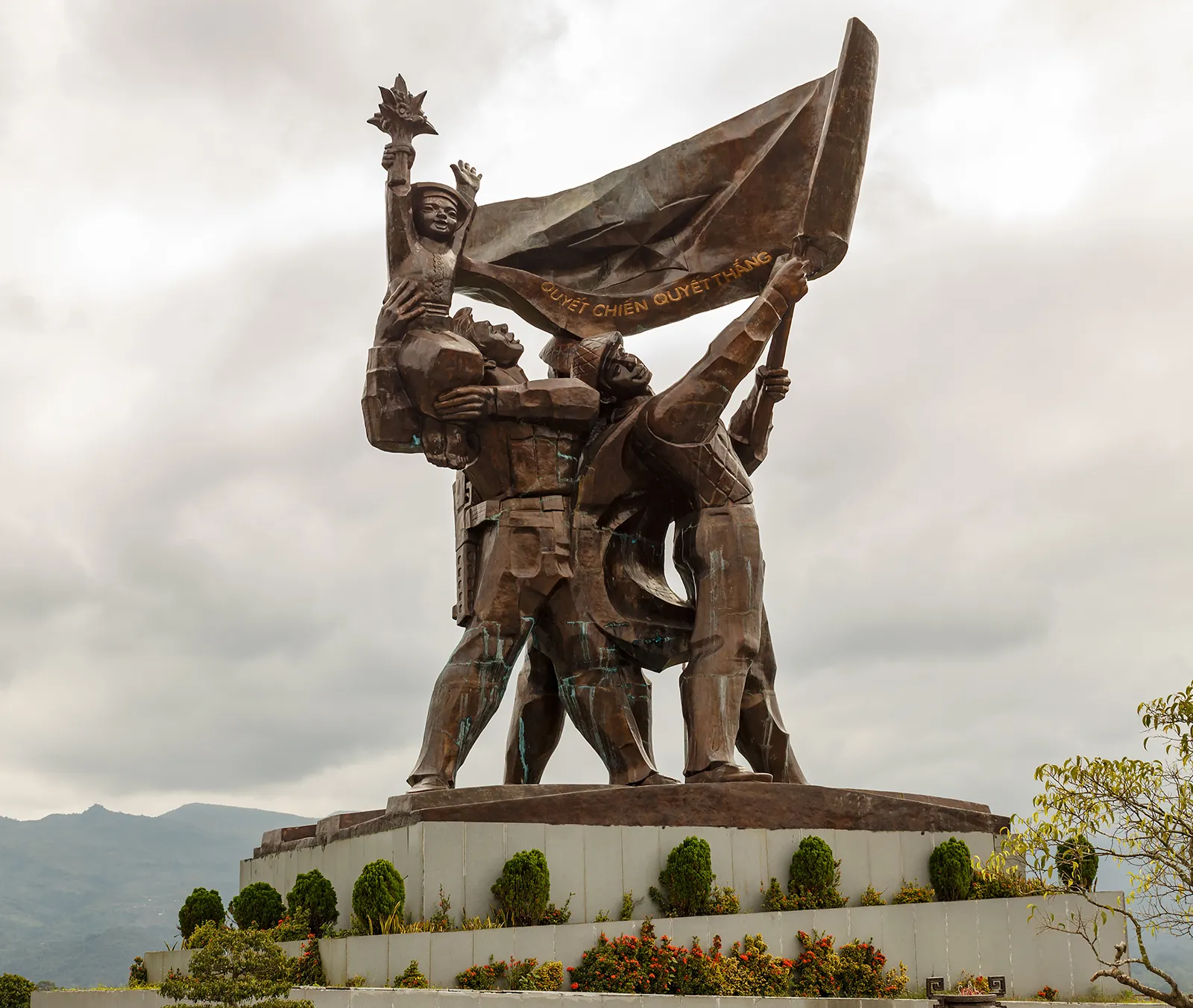The history of empires is replete with rulers and nations clinging desperately to the remnants of their former colonial domains. One such case is France after World War II when it attempted to maintain control over Vietnam through an elective war. Let's ask the question: Why do empires often exhibit a backward-looking approach, seeking to recreate their past glory? In turn, the question asks whether the United States risks falling into a similar trap in its current engagement with Ukraine arises.
Following World War II, France found itself grappling with the loss of its global power and influence. Determined to hold on to its former colonies, it embarked on an elective war in Vietnam, driven by a misguided belief that victory would restore its former imperial status. French leaders held the conviction that reasserting control over Vietnam would symbolize their nation's resilience and greatness.
Why are Empires Backwards Looking?
Loss of Power and Prestige: Former empires often struggle with the loss of power and prestige accompanying colonial rule's end. This loss can lead to nostalgia and a desire to reclaim former glory.
Economic Interests: Colonial empires were built upon exploiting resources and markets in the colonized territories. Maintaining control over these economic benefits becomes a priority for imperial powers, reinforcing a backward-looking approach.
National Identity and Pride: Empires often shape a nation's identity and pride. The dissolution of an empire can result in a national identity crisis, prompting leaders to pursue actions that seek to restore past greatness.
Fear of Irrelevance: Former imperial powers may fear being relegated to the sidelines of global affairs. Attempting to hold on to remnants of the empire is seen as a way to remain relevant and influential on the world stage.
The French war in Vietnam, which began in 1946 and ended with their defeat at Dien Bien Phu in 1954, exposed the futility of their backward-looking approach. Despite their military superiority, France failed to recognize the changing dynamics in the post-colonial world. Nationalist movements in Vietnam, led by Ho Chi Minh, sought independence and were unyielding in their resistance to French rule.
The French experience in Vietnam is a stark reminder of the consequences of trying to resurrect an ancient empire. While the motivations may be understandable, the world had moved on from the era of colonial domination. The French failure in Vietnam demonstrated the importance of adapting to changing circumstances, embracing self-determination, and relinquishing outdated imperial ambitions.
Could the US Make the Same Mistake in Ukraine?
Drawing parallels between historical events can be multiplex, but it is essential to examine the potential risks critically. In the context of Ukraine, the United States and other global powers need to learn from history and avoid repeating the mistakes of past empires.
The situation in Ukraine involves unbelievable geopolitical dynamics, and any intervention should prioritize respect for Ukraine's sovereignty and the right of its people to determine their future. An approach that considers the aspirations and interests of the Ukrainian people, rather than attempting to impose external control, such as the influence of Russia, NATO, the USA or even Western Financiers, -a truly neutral Ukraine born out of a ceasefire with no preconditions- is crucial to avoid a repetition of the backward-looking empire syndrome.
History has repeatedly shown that clinging to former imperial glory is futile. Empires must adapt to the changing global order and recognize the rights and aspirations of those they once ruled. The French War in Vietnam is a powerful reminder of the consequences of such a backward-looking approach. As the world evolves, nations must learn from history and embrace change.- even if the change is uncomfortable.















0 comments:
Post a Comment